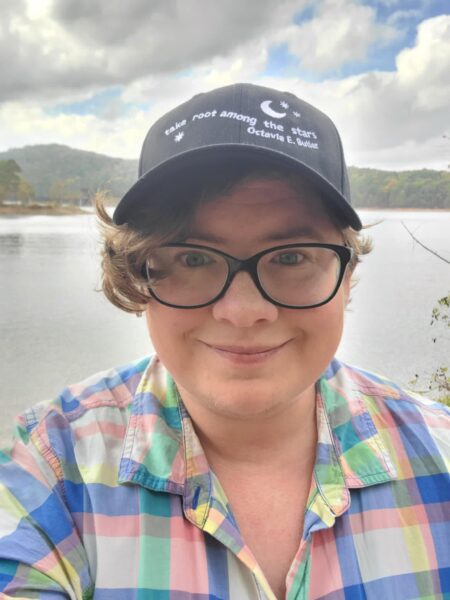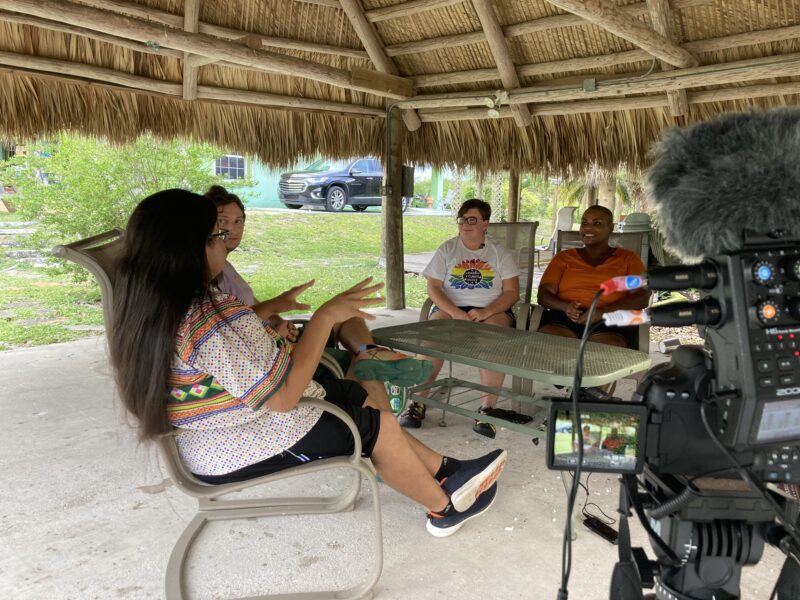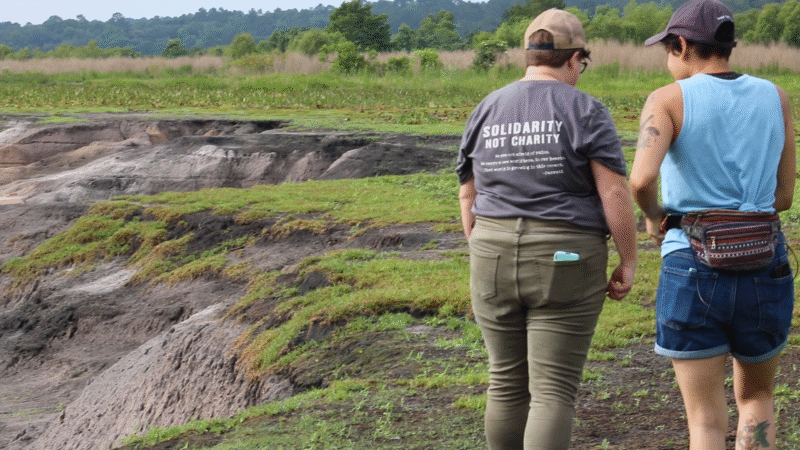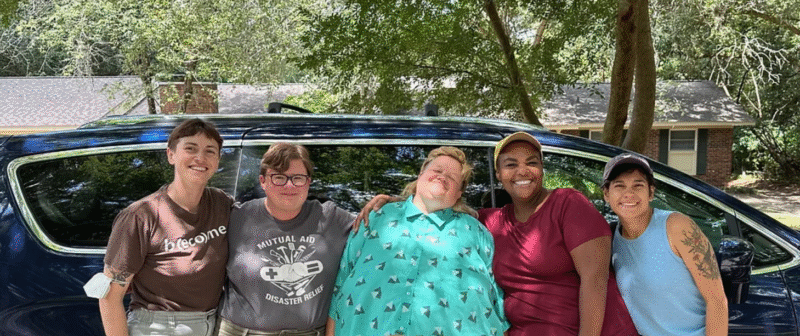My cheeks flush as everyone stares at me, nobody knowing how to break the silence. It’s February 2022 and I’m at a nature center with fellow graduate students, all of us in a Master of Environmental Education program based in South Florida. As far as I’m aware, I’m the only queer and transgender student in my cohort, and I’ve just voiced something that’s been weighing heavy on my mind.

Earlier in the month, Florida lawmakers introduced legislation targeting LGBTQ+ students and educators, most infamously the Parental Rights in Education Act, commonly known as Don’t Say Gay. They also introduced the Stop WOKE Act, which targeted race, gender, and sexuality in schools, universities, and workplaces. I had just finished describing these bills to my classmates, explaining how they would eventually affect everyone in education.
Eventually, my professor clears his throat to speak. Like most environmental education academics, my professor is white, cisgender, heterosexual, liberal, and considers himself an ally. He reassures me these bills are very unlikely to pass and, if they do, they won’t be enforced. I politely tell him he’s wrong. Later that spring, Governor Ron DeSantis signs both bills into law, launching a statewide campaign of fear, repression, and confusion that continues to this day.
When I moved to Florida in 2021, I planned to study education approaches that emphasized environmental justice and queer ecologies. I wanted to immerse myself in Florida’s biodiversity and queer communities. At first, living in South Florida felt like a dream. There were so many beautiful places to visit and interesting people to meet. I attended local queer events and found ways to incorporate queer concepts into my coursework. I was even able to use my university’s insurance to finally start testosterone.
Everything was going well until 2022, when a tidal wave of policy changes made it clear that LGBTQ+ people were no longer welcome in Florida’s education system. Soon after, schools began removing books from their libraries, rolling back protections for students, and punishing educators who spoke out. Simultaneously, Florida started restricting gender affirming care for trans people, especially youth. I became desperate for others in my field to fight back against these laws. I wrote about them in assignments, brought them up in staff meetings, and presented about them at conferences. I spoke with LGBTQ+ environmental educators about how these policies impacted their work. The more I learned, the more I got the nagging sense that this violence against LGBTQ+ people was not only a social justice issue. It was also an environmental justice issue.
Later that September, Hurricane Ian made landfall off the Gulf Coast, leaving devastation in its wake. Although South Florida was largely unaffected, I heard stories of Ian’s impacts and mutual aid networks providing relief. I didn’t think too much about it until early 2023, when an old friend of mine reached out. Vanessa, a queer climate justice academic based in Georgia, wanted to study the experiences of queer people responding to Hurricane Ian, particularly in light of the state’s anti-LGBTQ+ policies. “Finally,” I thought, “someone else who is trying to understand these intersections too.”
In April 2023, Vanessa traveled to South Florida along with Natalia, a queer climate justice organizer from Puerto Rico. Together, we drove to Orlando to visit queer organizers who were involved with Hurricane Ian response. We discussed how repressive legislation was making LGBTQ+ communities more vulnerable to climate disasters. We also noticed that it was the same politicians, funded by the same fossil fuel corporations, who enacted legislation harming LGBTQ+ communities and the planet. Out of that conversation, we came up with an idea: to create a rapidly produced, short documentary as an organizing tool.

A month later, I packed into a minivan with four other queers and a bunch of film equipment. Over the course of nine days, we drove from Miami to Tallahassee, interviewing 10 LGBTQ+ organizers, artists, and activists. We connected with Florida ecology, visiting the Everglades, the beach, the springs, and a sinkhole. After a magical week, we returned home to sort through dozens of hours of footage. We quickly realized that honoring these stories would take more time and effort than we imagined. We also identified gaps in the narrative, resulting in four more production trips and 15 total interviews. After many long and often frustrating editing sessions, we emerged with a feature-length film: Can’t Stop Change: Queer Climate Stories from the Florida Frontlines.

Can’t Stop Change dives deep into the experiences of LGBTQ+ Floridians navigating stronger storms, rising seas, and escalating state violence. Simultaneously, it uplifts queer and trans joy, resistance strategies, and dreams for liberation. After premiering the film in March 2024 at the Tampa Bay Transgender Film Festival, we hosted screenings within and outside of Florida. Florida audiences expressed how powerful it was to see their communities represented, while others shared that the film shifted their perspectives and inspired acts of allyship. In March 2025, we released an updated cut with new interviews from Jacksonville, and will be hosting more screenings between April and June 2025.

Working on Can’t Stop Change has forever bound me to Florida’s queer, trans, and more-than-human communities. To me, Can’t Stop Change isn’t just a film. It’s a love letter to all those resisting, creating, and caring for each other on the frontlines of fascist regimes. It’s also an archive, preserving queer Southern stories from this particular moment when we’re teetering on the precipice of a changing world. I don’t know what will happen to the people and places who make up “the real Florida” as seas rise and storms strengthen and the state gets more violent. All I know is that we need to hold each other tight as we work to turn the tide.
Can’t Stop Change: Queer Climate Stories from the Florida Frontlines is now available for bookings. Screening licenses are free for groups in Florida and available using a sliding scale fee structure everywhere else, with no one turned away for lack of funds. 50% of screening fees are placed into a mutual aid fund for film collaborators. Visit linktr.ee/cantstopchange for more information.

